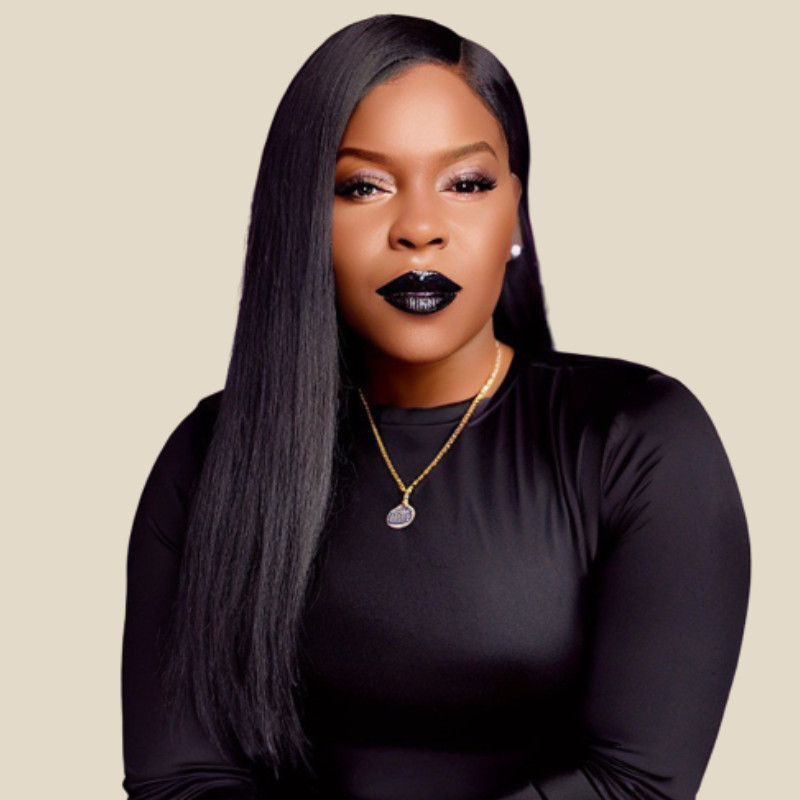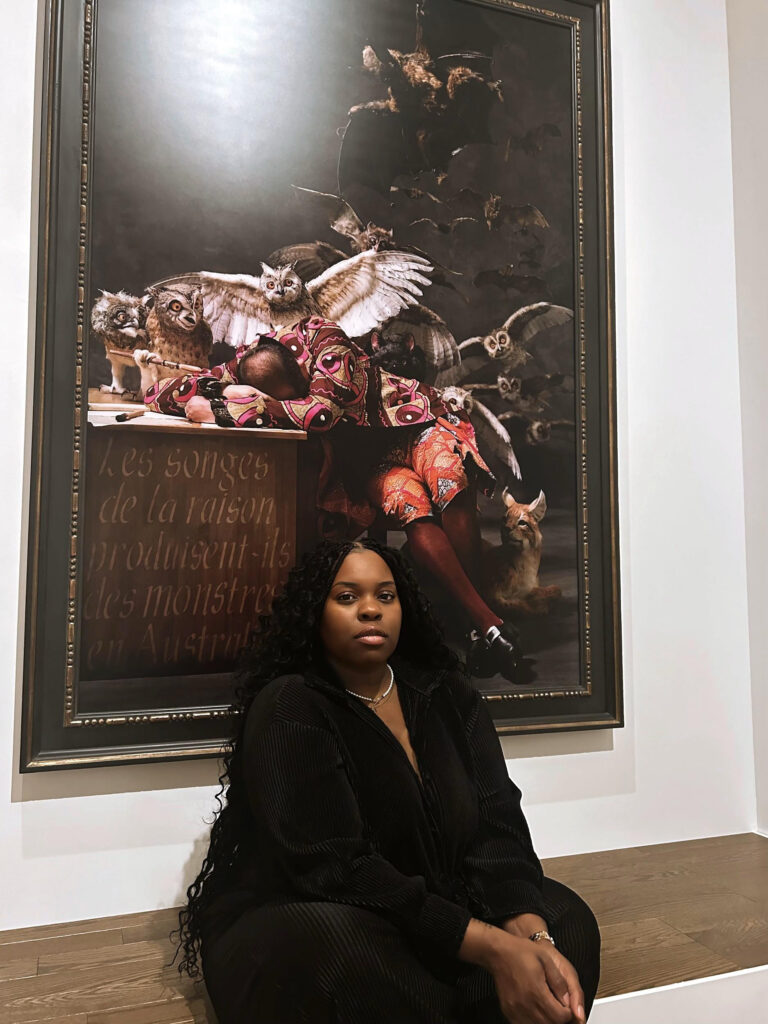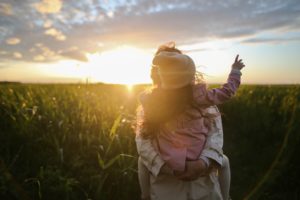In her journey of healing and transformation, Nyeesha Williams has embraced vulnerability, forgiveness, and radical honesty, turning her challenges into a source of strength and empowerment. From rewriting her own story to helping others reclaim theirs, Nyeesha is a beacon of hope and resilience. Through her work with young girls, her writing, and her podcast, she has created a path for others to follow, rooted in love, purpose, and the power of storytelling. Nyeesha’s unwavering commitment to healing is a reminder that, no matter where we begin, we all have the ability to transform and inspire.
1. What was the most challenging moment you faced in your journey of rewriting your story, and how did you find the strength to overcome it?
The most challenging moment was embracing radical honesty with myself. Acknowledging the trauma, hurt, and self-limiting beliefs that I carried for years was tough. But in that vulnerability, I found strength by surrendering to the healing process. I leaned into therapy, holistic practices, and community support. It was about trusting that there was something beautiful on the other side of the pain, and I allowed myself the grace to grow and rewrite my story from a place of love and empowerment.

2. How did the experiences of your past influence your decision to focus on healing and helping others?
My past was marked by struggle, uncertainty, and a search for identity and peace. Those experiences became the foundation for my purpose. I knew that if I could navigate those dark spaces and find healing, then I could help others do the same. My journey taught me that healing isn’t just about survival; it’s about reclaiming your power and sharing that gift with others. I realized that by focusing on healing, I could be a bridge for others seeking to do the same.
3. Can you share more about the process of radical forgiveness and how it impacted your journey?
Radical forgiveness was transformative because it required me to release resentment and blame, not only toward others but also toward myself. It’s a practice of deep compassion, where I learned to see people, including myself, through a lens of understanding rather than judgment. This shifted my perspective from a victim mindset to one of empowerment. Forgiveness was never about forgetting; it was about letting go of the hold the past had on me and creating space for joy, creativity, and growth.
4. What inspired you to start the schools for young girls in Africa, and what has been the most rewarding aspect of this work?
The inspiration came from my belief in the transformative power of education and the importance of creating spaces for young girls to dream beyond their circumstances. I wanted to provide opportunities that would empower them to lead their own communities and rewrite their narratives. The most rewarding aspect has been witnessing the growth, resilience, and leadership these girls demonstrate. Seeing them gain confidence, embrace their worth, and use their education to uplift others is the ultimate reward.
5. How do you maintain your mental health and well-being amidst the demanding projects and personal challenges you face?
I’m intentional about creating boundaries, daily routines, and rituals that keep me grounded. Meditation, yoga, journaling, and spending time in nature are vital practices. I also surround myself with people who pour into me—mentors, friends, and my spiritual community. Regular check-ins with myself ensure that I’m not overextending or losing sight of my own needs. I’ve learned that prioritizing rest and joy isn’t just self-care—it’s necessary for sustainability in my work.
6. What strategies did you use to overcome depression and physical health issues, and how have they influenced your approach to healing?
Overcoming depression and physical health challenges was a journey of integrating both conventional and holistic practices. I leaned on therapy, nutrition, exercise, and mindfulness techniques, but also focused on connecting with my body’s natural rhythms. My healing was deeply rooted in understanding the mind-body connection, which is why my approach with clients and in my programs is holistic. It’s about addressing all aspects—mental, physical, emotional, and spiritual.
7. How did self-publishing books contribute to your healing process and your ability to help others?
Writing was cathartic—it allowed me to give voice to my experiences and release the emotions I carried. Self-publishing was empowering because it was an act of taking control over my narrative and sharing it on my own terms. Each book became a stepping stone in my healing journey, and the feedback from readers who found resonance and healing in my words reinforced my mission. It’s a reminder that storytelling is a powerful tool for transformation and connection.
8. What role has storytelling played in your journey, and how do you use it to connect with and inspire others?
Storytelling is at the heart of everything I do. It’s how I process my experiences, connect with others, and create change. Sharing stories allows me to be authentic and vulnerable while offering hope and guidance. It’s through storytelling that I’ve built meaningful connections and inspired others to believe in their own capacity for healing and growth. Whether it’s through writing, speaking, or podcasting, I use storytelling to plant seeds of transformation.
9. Can you discuss any specific challenges or breakthroughs you’ve experienced while working on your documentary and retreat tour?
One of the biggest challenges has been balancing the creative process with the logistical demands of producing a documentary and organizing retreats. There’s also been an emotional toll in revisiting my own story and holding space for others to share theirs. But the breakthroughs have come in the form of deeper connections and realizing that this work is bigger than me. Seeing the impact on participants and viewers has reaffirmed why I do what I do and has pushed me to expand my vision.
10. How do you approach balancing personal healing with your professional commitments, especially with your current projects?
It’s a dance of honoring both my inner work and outer responsibilities. I’ve learned that personal healing is ongoing and non-linear, so I integrate it into my daily life rather than compartmentalizing it. This might mean taking time out during the day to meditate, saying no to certain projects, or seeking therapy when needed. Professionally, I ensure my commitments align with my values and are conducive to my well-being. I’ve also built a supportive team that allows me to focus on what matters most.
11. What advice would you give to women who are struggling with trauma and looking to begin their own healing journey?
My advice is to start by giving yourself permission to heal. Healing is not linear, and it takes time, so be gentle with yourself. Seek out safe spaces where you can explore your emotions, whether through therapy, community support, or creative expression. Remember that you are not alone—there is strength in asking for help and connecting with others who understand. Most importantly, trust that your healing is possible and that you have the power to rewrite your story.
12. How do you stay motivated and focused on your goals despite the hardships you’ve faced?
My motivation comes from my purpose and the lives I’m called to impact. On difficult days, I remind myself of why I started and the legacy I want to leave behind. I break my goals into small, manageable steps and celebrate each victory, no matter how small. Surrounding myself with positive energy and engaging in practices that keep my spirit uplifted also keep me on track. Hardships have taught me resilience, and I view them as opportunities for growth rather than setbacks.
13. What impact do you hope your podcast and music collaborations will have on the lives of others?
I hope they inspire people to see beyond their limitations and tap into their creative potential. The podcast, in particular, is a platform for meaningful conversations that uplift and guide listeners toward becoming their best selves. My music collaborations are designed to resonate on an emotional level, offering healing frequencies and messages that shift perspectives. I want my work to be a source of empowerment, helping others unlock the courage to pursue their own paths to healing and growth.
14. How do you handle the emotional weight of your work while ensuring you continue to care for yourself?
It’s crucial for me to practice what I preach. I regularly check in with myself, identify what emotions I’m carrying, and release them through meditation, movement, or creative expression. I’m intentional about taking breaks, resting, and doing things that bring me joy. Surrounding myself with a strong support system is also key. I’ve learned that it’s okay to step back and recharge—it’s not a sign of weakness, but a necessary part of sustaining the work I do.

15. What are your future goals, and how do you plan to continue making a positive impact in the lives of young women and girls?
My future goals include expanding my retreats globally, launching more initiatives for young women and girls, and creating a foundation that focuses on mental health, creativity, and leadership development. I also plan to continue writing, producing content, and collaborating with other changemakers. My mission is to create a lasting legacy that empowers young women and girls to lead with confidence, heal from within, and make meaningful contributions to the world.
IG: @nyeeshad
FB: https://www.facebook.com/Nyeeshad/
X: https://www.twitter.com/NyeeshaD
YT: https://www.youtube.com/@nyeeshad






